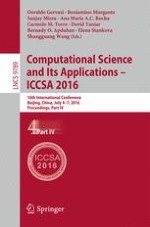2016 | OriginalPaper | Chapter
A Nonlinear Multicriteria Model for Team Effectiveness
Authors : Isabel Dórdio Dimas, Humberto Rocha, Teresa Rebelo, Paulo Renato Lourenço
Published in: Computational Science and Its Applications -- ICCSA 2016
Publisher: Springer International Publishing
Activate our intelligent search to find suitable subject content or patents.
Select sections of text to find matching patents with Artificial Intelligence. powered by
Select sections of text to find additional relevant content using AI-assisted search. powered by
